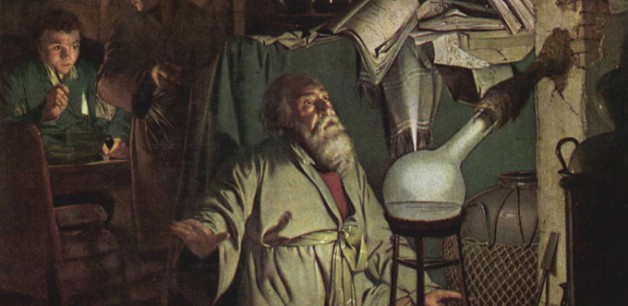Recently I began watching a TV show produced by AMC called Breaking Bad. It is a story of a middle-aged high school teacher, Walter White, who is diagnosed with advanced lung cancer. The twist of the series is that he decides to use his skills as a chemist to cook crystal methamphetamine in order to pay for his treatment and simultaneously secure the financial well-being of his family after his death.
Walter White is a man who has followed the rules with the unspoken (and perhaps unconscious) assumption that in so doing everything would ‘work out in the end.’ When he is confronted with this terrible physical evil, his belief system collapses. What becomes apparent is that he only followed the rules (i.e., obeying the the law, observing social decorum, honoring family commitments) because he thought that in so doing, he obtained a beneficial result. When things take the unexpected turn south, he essentially responds by treating the rules as though they are abrogated. It takes him little time to rationalize and implement his plan to manufacture meth. It is this transition from being a law-abiding man to a drug dealer that his partner describes as ‘breaking bad.’
With these exceedingly prideful actions, he turns to himself to solve his problems and to fight back against fate by trying to take control. At one point he tells a fellow cancer patient: “Never give up control. Live life on your own terms . . . every few months I come in here for my regular scan knowing full well that one of these times I’m going to hear some bad news. But, until then whose in charge? ME. That’s how I live my life.”
So what’s the point? Why have I devoted all this precious blog space to a synopsis of a TV show? Well, I have found this story rather intriguing in that it serves as an artful illustration of a man making a subtle transition from formal to material injustice. Or, in plain English, it depicts a man who breaks the rules because he hasn’t gotten what he wanted by following them. He has come to believe that he has a right to do whatever he wants because justice, which is really his own constructed concept of cosmic justice, has abandoned him.
Some critics have commented that the transformation of Walter was too rapid to be credible. Perhaps. But I find it plausible because Walter had always carried the disposition to “break bad,” even when the external circumstances made it unnecessary to do so.
Though it might be forced, I can’t help but see in this series an allegory for the Christian life. There is a temptation to see our relationship with God and even our relationships with each other as loci of exchange. Our relationship with God becomes the place where we trade good and moral behavior for the blessings of a stable and secure life. Our relationships with one another become places where we can exchange social decorum for desired responses and the comfort of hearing what we want.
The challenge for us, especially as Catholics, is to root out such misplaced and unhealthy expectations so that when our expectations are frustrated, that is, when we are met with the inevitable trials and sufferings of this world, we can respond in loving obedience. Instead of breaking bad, we are called to make good by following those words of St James: ‘Consider it all joy, my brothers, when you encounter various trials, for you know that the testing of your faith produces perseverance. And let perseverance be perfect, so that you may be perfect and complete, lacking in nothing.’
Image: An Alchemist’s Laboratory







